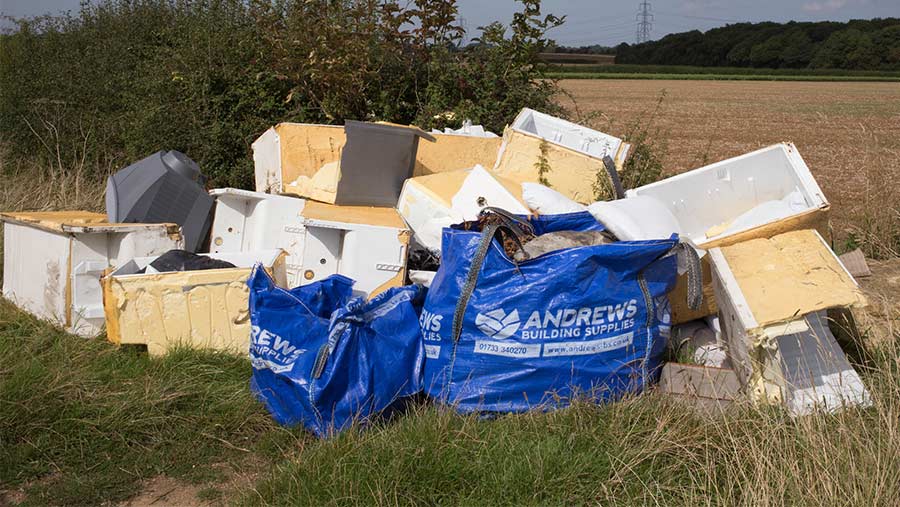Fly-tipping figures trigger strong farmer backlash
 © Tim Scrivener
© Tim Scrivener Newly released government figures which show a drop in fly-tipping cases fail to reflect the true situation in the countryside, say farming organisations.
Defra’s annual fly-tipping statistics show local authorities dealt with 1.09 million incidents in the year ending March 2022.
Despite a year-on-year decrease of 3%, this still represents an equivalent of 124 fly-tipping incidents an hour.
See also: What to do if you’re a victim of… fly-tipping
The Country Land and Business Association (CLA) said the figures “do not even scrape the surface” of the problem, as cases on private land are not recorded.
It says landowners pay £1,000 on average to clear up other people’s waste, rising to £100,000 for the most serious cases.
CLA president Mark Tufnell said: “These figures fail to reflect the full scale of the crime, as increasing reports of fly-tipping on private rural land are not included.
“Hundreds of thousands of offences on private land are going unrecorded, as farmers often have so little faith in the ability of the police or council to deal with fly-tipping that they simply bear the cost of removing rubbish themselves.”
Fly-tipping affects about 67% of farmers in England and Wales, costing them about £47m a year, according to the Keep Britain Tidy campaign group.
Emotional and financial toll – NFU
The NFU said farmers were increasingly seeing industrial-scale amounts of rubbish, such as builder’s rubble and hazardous materials dumped on their land.
“This is affecting farmers’ efforts to produce food and care for the environment but is also taking a huge toll emotionally and financially,” said NFU environment forum chairman Richard Bramley.
Local authorities have announced a raft of new measures to crack down on waste crime, including £400 on-the-spot fines and covert cameras in fly-tipping hotspots.
But farming groups want to see tougher penalties for offenders – the maximum fine for fly-tipping of £50,000 or 12 months in prison is rarely imposed.
Farmers also would like to see additional police resource in rural areas to tackle the epidemic.
